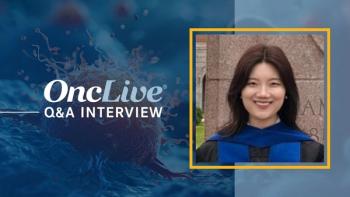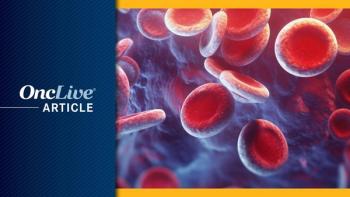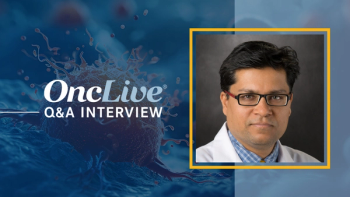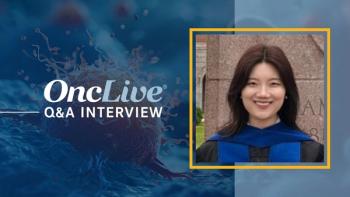
ASCO 2020: ZUMA-2 Update
Bijal Shah, MD:
It is interesting to see that there were some changes in terms of the percentages of effector or effector memory or naïve T-cells. What that means in the grand scheme of things is a little harder to understand in this data set. One of the things I really liked is their focus on clinical response. Here they focused on MRD [minimal residual disease] down to 1 in 100,000 cells. They had to ask whether there were some cytokines that were more likely associated with a deeper response. There were only 5 in the MRD-negative population analyzed here—a testament to how well this works—but it also makes it hard to ask some of these questions.
They could show that having a higher interleukin-2 [IL-2], interleukin-6 [IL-6], and interferon gamma may be associated with a higher likelihood of being MRD negative. We think of interleukin-6 and interleukin-2 as just being more broadly associated with T-cell proliferation. Whether it’s the CAR T cells or native T cells—as Scott Rodig’s group from Harvard has been focusing on in the context of diffuse large B cell lymphoma plus CAR—is a little harder to tease out. This may be very important when we talk about those with TP53 mutation who may have a lot of novel or neoantigens that they’re expressing in the context of MHC [major histocompatibility complex].
In any case, I was really glad they did this. It would be very interesting to see how this concept of looking at the cytokines as a marker for MRD positivity or negativity, given its overwhelming sensitivity for detecting residual disease, can help us better understand or predict who’s going to do well or not do well over time.
In this update they also looked at these cytokine signatures to see if they can predict for more severe neurotoxicity. In this paper, they separated into those who had no neurotoxicity, and there were about 25 folks from those who had very severe (grade 4) neurotoxicity, among which there were 6. It shouldn’t surprise folks that those who have severe neurotoxicity are likely to have higher cytokines just as a general observation. But they could show this most clearly for interferon gamma, tumor necrosis factor alpha, MCP1, soluble VCAM1, IL-2, and IL-6.
Of all these, the one that gets my attention the most, of course, is interleukin-6. We know that treating with tocilizumab for severe neurotoxicity doesn’t come with a lot of benefit. In fact, we focus on the management of those patients with steroids. But it may be relevant because this secondary elevation of IL-6 occurs as a consequence of tocilizumab. We have seen in some studies that there’s this correlation between having severe CRS [cytokine release syndrome] and having severe neurotoxicity, and it may be that in trying to treat that severe CRS with tocilizumab, we drove an interleukin-6 elevation, but that could potentially culminate in some neurotoxicity. I don’t want to make this sound definitive. This is pure speculation in this trial.
Transcript Edited for Clarity





































